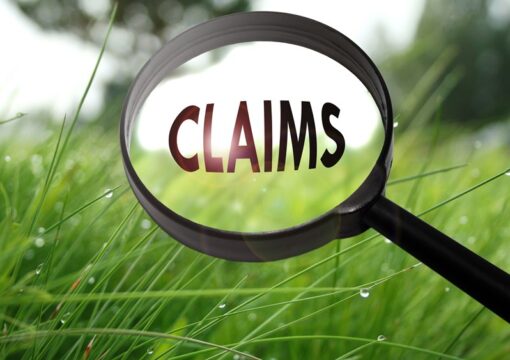
Special rules apply to assets when they are passed to a beneficiary after the death of the benefactor. In some cases Inheritance Tax may be due on the transfer. However, there can also be a hidden benefit known as a Capital Gains Tax (CGT) uplift on

Advisory fuel rates are intended to reflect actual average fuel costs and are updated quarterly. The rates can be used by employers who reimburse employees for business travel in their company cars or where employees are required to repay the cost of

Whilst the majority of businesses charge VAT at the standard rate of 20% there are a number of different VAT rates and exemptions that businesses should be aware. There are actually three separate VAT rates, the standard rate of 20%, the reduced rate

[et_pb_section bb_built=”1″][et_pb_row][et_pb_column type=”4_4″][et_pb_text admin_label=”Fortnight” _builder_version=”3.0.106″ background_layout=”light”] Burton Sweet are running a fortnight of Exit Planning and Business Valuation advice from Monday 21st May –

The Construction Industry Scheme (CIS) is a set of special rules for tax and national insurance for those working in the construction industry. Businesses in the construction industry are known as ‘contractors’ and ‘subcontractors’. Under the scheme,

The employment allowance of £3,000 per year is available to most businesses and charities to be offset against their employers Class 1 NIC bill. The allowance can be claimed as part of the normal payroll process using either HMRC’s Basic PAYE Tools

Landlords that receive letting income should notify HMRC by 5 October after the end of the tax year for which you start to receive that income. So, for the 2017-18 tax year that has just ended, HMRC needs to be notified by 5 October 2018 of any

The Non-resident landlord (NRL) scheme is a special scheme for the UK rental income of non-resident landlords. This includes companies or trustees whose ‘usual place of abode’ is outside the UK. HMRC classifies a person living abroad for 6 months or

The Married Couple’s Allowance (MCA) is available to elderly married couples or those in a civil partnership, where at least one member of the couple were born before 6 April 1935 (i.e. at least 83 years old). The allowance provides for tax relief by

The settlements legislation is contained in s.624 ITTOIA 2005. The legislation seeks to ensure that where a settlor has retained an interest in property, in a settlement, that the income arising is treated as the settlor’s income for tax purposes. A

The President of the Employment Tribunals (England and Wales) and the President of the Employment Tribunals (Scotland) have issued updated joint Presidential Guidance in relation to the so-called “Vento bands” for compensation for injury to feelings

The Finance Bill 2017-18 officially known as Finance (No.2) Bill 2017-19, received Royal Assent on 15 March 2018 following agreement by both Houses. The Bill is now an Act of Parliament to be called the Finance Act 2018. The Act contains the

One important aspect of a self-catering or holiday let business that should not be overlooked, is whether or not the owner of a holiday let is liable to pay business rates. Business rates are charged on non-domestic properties and help councils and

A summary of the Spring Statement will be added later today.

The rules for individuals providing services to the public sector via an intermediary such as a personal service company (PSC) changed from April 2017. The rules, known as off-payroll working rules shift the responsibility for deciding whether the

The new requirement to correct (RTC) legislation was introduced by the Finance (No.2) Act 2017. The legislation created a new statutory obligation for taxpayers with undeclared UK tax liabilities that involve offshore matters to disclose any relevant

Capital allowances is the term used to describe the tax relief businesses can claim on certain capital expenditure and thereby reduce the amount of taxable profits. Most ‘capital’ items, such as equipment, vehicles, machinery etc last for a

HMRC expects that taxpayers take ‘reasonable care’ over their tax affairs and do everything reasonably within their power to ensure that tax returns and other relevant documents are accurate.
There is no legal definition of reasonable care from a
A special employment history request can be submitted by taxpayers for those needing to make a claim for compensation. The form is usually used for claims relating to industrial injuries, road traffic accidents, medical negligence and hardship.
HMRC

When your partner gives birth or when you adopt a child or have a baby by surrogate, you may be entitled to 1 or 2 weeks paternity leave and paternity pay. You are also entitled to take a small amount of unpaid time off work before the baby is born

There are special rules in place when a limited company gives to a charity. This can include Corporation Tax relief for certain donations made to registered charities or community amateur sports club (CASC) as well as capital allowances for giving

As a general rule there is no CGT payable on the disposal of a property which has been used as the main family residence. Conversely, an investment property which has never been used will not qualify for relief. This relief from CGT is commonly known

The self-employed are often concerned regarding expenses they can claim. In this article, we will briefly look at the rules for claiming expenses relating to office, property and equipment. You cannot claim for any non-business use of premises,

A recent investigation by the Insolvency Service has seen two married restaurant directors disqualified for a total of 5 years each. The Directors of Gambino Fish Ltd trading as Quality Fish, were the subject of an in-depth investigation by HMRC.